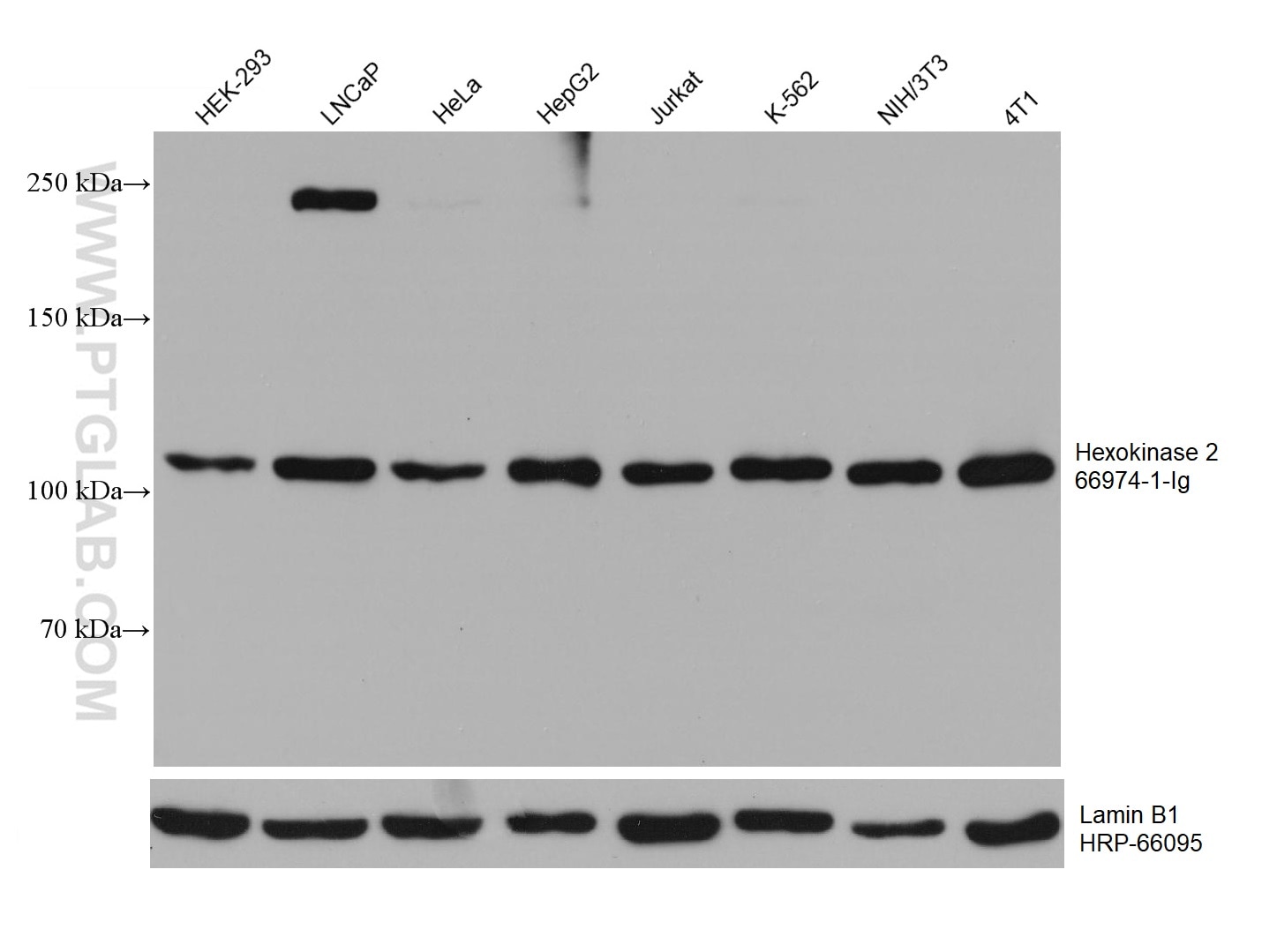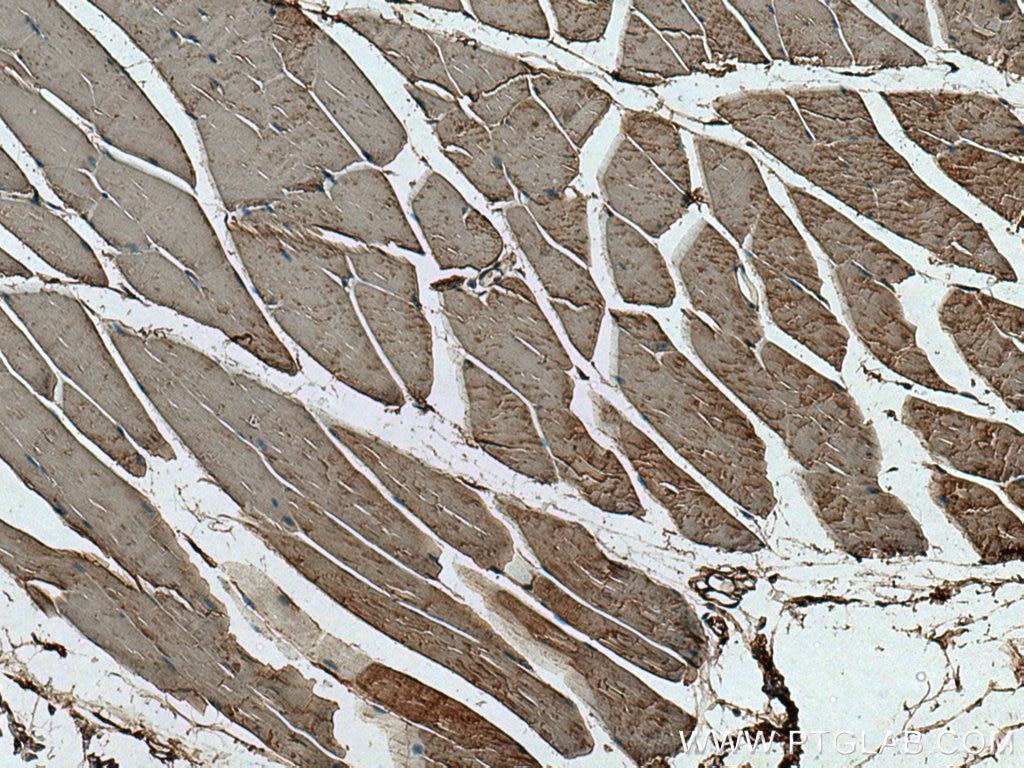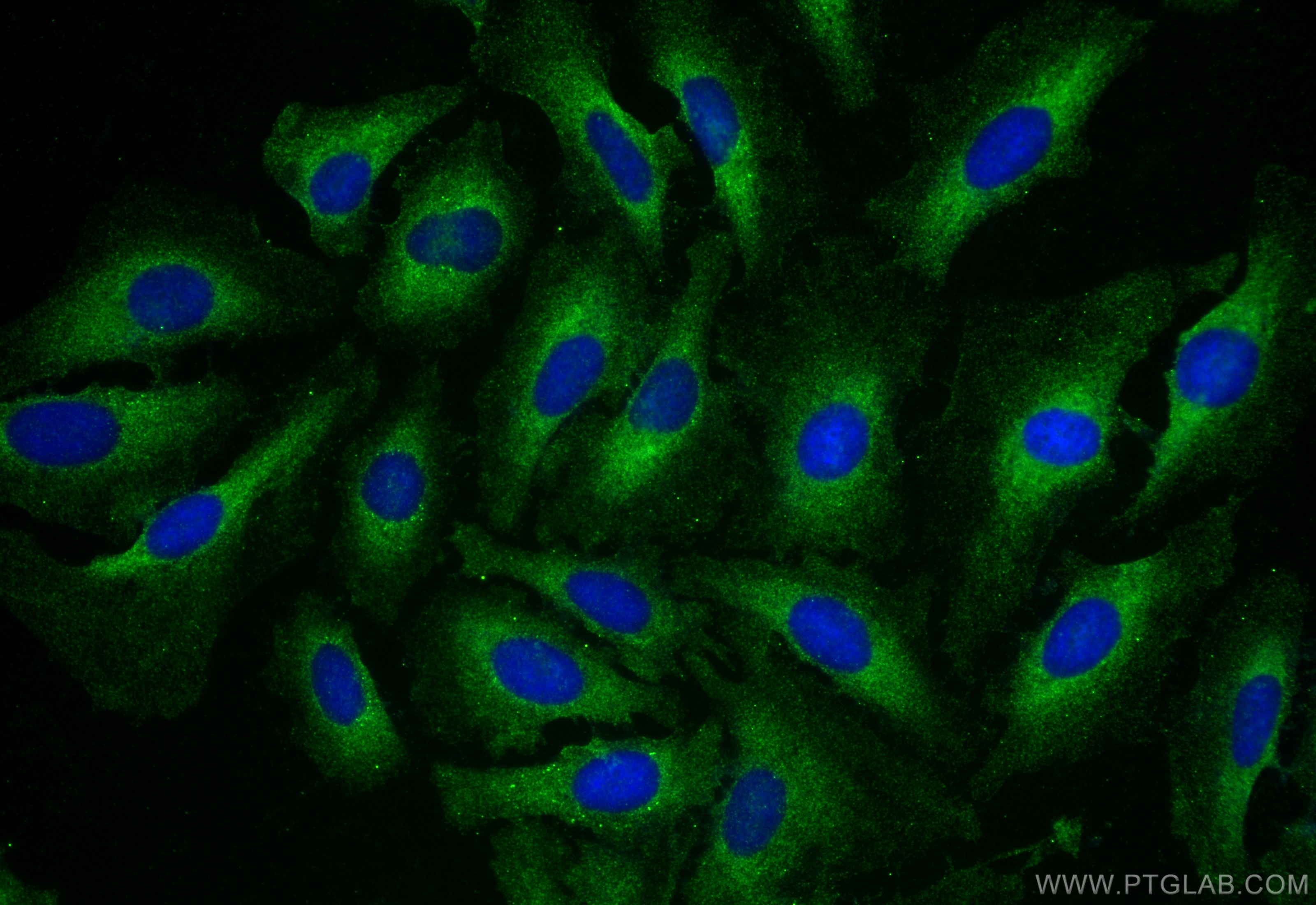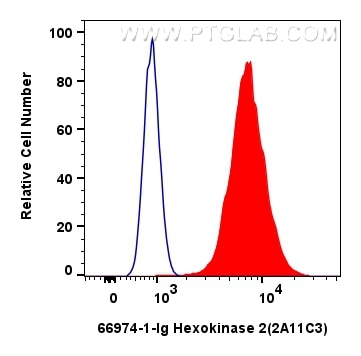Anticorps Monoclonal anti-Hexokinase 2
Hexokinase 2 Monoclonal Antibody for WB, IHC, IF/ICC, FC (Intra), ELISA
Hôte / Isotype
Mouse / IgG1
Réactivité testée
Humain, rat, souris et plus (1)
Applications
WB, IHC, IF/ICC, FC (Intra), CoIP, ELISA
Conjugaison
Non conjugué
CloneNo.
2A11C3
N° de cat : 66974-1-Ig
Synonymes
Galerie de données de validation
Applications testées
| Résultats positifs en WB | cellules HEK-293, cellules 4T1, cellules HeLa, cellules HepG2, cellules Jurkat, cellules K-562, cellules LNCaP, cellules NIH/3T3 |
| Résultats positifs en IHC | tissu de muscle squelettique de souris, il est suggéré de démasquer l'antigène avec un tampon de TE buffer pH 9.0; (*) À défaut, 'le démasquage de l'antigène peut être 'effectué avec un tampon citrate pH 6,0. |
| Résultats positifs en IF/ICC | cellules HeLa, |
| Résultats positifs en FC (Intra) | cellules HepG2, |
Dilution recommandée
| Application | Dilution |
|---|---|
| Western Blot (WB) | WB : 1:5000-1:20000 |
| Immunohistochimie (IHC) | IHC : 1:250-1:1000 |
| Immunofluorescence (IF)/ICC | IF/ICC : 1:375-1:1500 |
| Flow Cytometry (FC) (INTRA) | FC (INTRA) : 0.25 ug per 10^6 cells in a 100 µl suspension |
| It is recommended that this reagent should be titrated in each testing system to obtain optimal results. | |
| Sample-dependent, check data in validation data gallery | |
Applications publiées
| WB | See 56 publications below |
| IHC | See 15 publications below |
| IF | See 5 publications below |
| CoIP | See 1 publications below |
Informations sur le produit
66974-1-Ig cible Hexokinase 2 dans les applications de WB, IHC, IF/ICC, FC (Intra), CoIP, ELISA et montre une réactivité avec des échantillons Humain, rat, souris
| Réactivité | Humain, rat, souris |
| Réactivité citée | rat, Humain, porc, souris |
| Hôte / Isotype | Mouse / IgG1 |
| Clonalité | Monoclonal |
| Type | Anticorps |
| Immunogène | Hexokinase 2 Protéine recombinante Ag16895 |
| Nom complet | hexokinase 2 |
| Masse moléculaire calculée | 102 kDa |
| Poids moléculaire observé | 102-120 kDa |
| Numéro d’acquisition GenBank | BC021116 |
| Symbole du gène | Hexokinase 2 |
| Identification du gène (NCBI) | 3099 |
| Conjugaison | Non conjugué |
| Forme | Liquide |
| Méthode de purification | Purification par protéine G |
| Tampon de stockage | PBS with 0.02% sodium azide and 50% glycerol |
| Conditions de stockage | Stocker à -20°C. Stable pendant un an après l'expédition. L'aliquotage n'est pas nécessaire pour le stockage à -20oC Les 20ul contiennent 0,1% de BSA. |
Informations générales
Hexokinase 2 (HK2), a rate-limiting enzyme in the first step of glycolysis pathway, expresses at high level in cancer cells compared with normal cells. HK2 provides a new target for cancer therapy due to its pivotal role in tumor tumourigenic and metastatic process. HK1 is constitutively expressed in most mammalian adult tissues. HK2, however, although is abundantly expressed in embryonic tissues, is expressed at high levels only in limited number of adult tissues such as adipose, skeletal, and cardiac muscles. (PMID: 29305912, PMID: 28427443, PMID: 23911236). The antibody also recognizes Hexokinase 1.
Protocole
| Product Specific Protocols | |
|---|---|
| WB protocol for Hexokinase 2 antibody 66974-1-Ig | Download protocol |
| IHC protocol for Hexokinase 2 antibody 66974-1-Ig | Download protocol |
| IF protocol for Hexokinase 2 antibody 66974-1-Ig | Download protocol |
| Standard Protocols | |
|---|---|
| Click here to view our Standard Protocols |
Publications
| Species | Application | Title |
|---|---|---|
Cell Metab High dietary fructose promotes hepatocellular carcinoma progression by enhancing O-GlcNAcylation via microbiota-derived acetate | ||
Small A Constant Filgotinib Delivery Adhesive Platform Based on Polyethylene Glycol (PEG) Hydrogel for Accelerating Wound Healing via Restoring Macrophage Mitochondrial Homeostasis | ||
Emerg Microbes Infect The regulation of cell homeostasis and antiviral innate immunity by autophagy during classical swine fever virus infection | ||
Clin Transl Med USP7 promotes non-small-cell lung cancer cell glycolysis and survival by stabilizing and activating c-Abl | ||
Br J Pharmacol HSP90β shapes the fate of Th17 cells with the help of glycolysis-controlled methylation modification | ||
Acta Pharmacol Sin Bmal1 inhibits phenotypic transformation of hepatic stellate cells in liver fibrosis via IDH1/α-KG-mediated glycolysis. |





